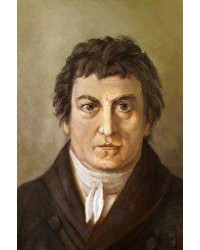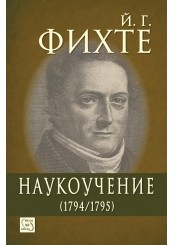Johann Gottlieb Fichte

Johann Gottlieb Fichte (1762–1814) was a German philosopher who became a founding figure of the philosophical movement known as German idealism, which developed from the theoretical and ethical writings of Immanuel Kant. Recently, philosophers and scholars have begun to appreciate Fichte as an important philosopher in his own right due to his original insights into the nature of self-consciousness or self-awareness. Fichte was also the originator of thesis–antithesis–synthesis, an idea that is often erroneously attributed to Hegel. Like Descartes and Kant before him, Fichte was motivated by the problem of subjectivity and consciousness. Fichte also wrote works of political philosophy; he has a reputation as one of the fathers of German nationalism.
He was one of the major figures in German philosophy in the period between Kant and Hegel. Initially considered one of Kant's most talented followers, Fichte developed his own system of transcendental philosophy, the so-called Wissenschaftslehre. Through technical philosophical works and popular writings Fichte exercised great influence over his contemporaries, especially during his years at the University of Jena. Today, however, Fichte is more correctly seen as an important philosopher in his own right, as a thinker who carried on the tradition of German idealism in a highly original form.
€10.23 (20.00 лв.) €12.78 (25.00 лв.) Ex Tax: €9.38 (18.35 лв.)



